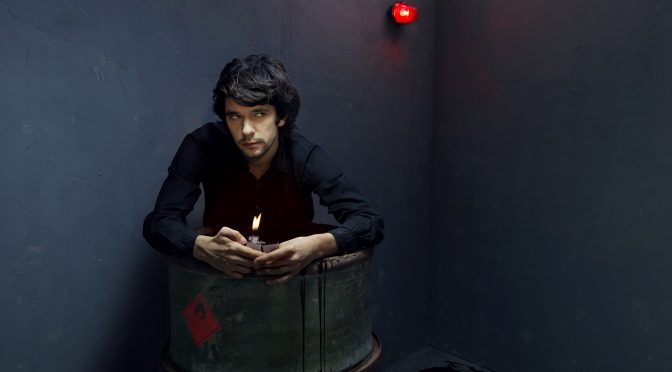With the first instalment of the Almeida’s Greek season, Oresteia, having announced a West End transfer, Bakkhai, has a lot to live up to. James Macdonald’s production of Euripides’ play is a traditional affair that takes us close to the original. bringing an opportunity to learn something deeper about Greek drama and its power. Vastly different from Oresteia’s contemporary take, the show makes a great contrast and confirms the season is one of this year’s theatrical highlights.
Marked by a strong sense of purpose, Antony McDonald’s simple design and Peter Mumford’s lighting accompany a clear and concise text from Anne Carson. Both Carson and Macdonald have a powerful appreciation of the dichotomies embraced by the religion at the heart of the play, explaining the concept of a daimon and its implications for Dionysus’ crazed followers. Macdonald’s grip never falters as he crafts the tension and explores the consequences of hubris. Most notable is the primary role of the Chorus and music in the show – nearly half of the production is sung.
The star attraction is Ben Whishaw, heading up the excellent promotional photography, and perfectly cast to bring out the complexities of the god, with flowing hair and fey gestures transformed into something sinister in a moment. As with his fellow performers, Whishaw takes on other roles admirably, but Bertie Carvel gets the best of this tactic, playing the ruler Pentheus with confident efficiency, then his mother Agave, with a visceral turn that puts the ghost of his Miss Trunchbull from Matilda to rest. Joining them is Kevin Harvey, whose roles include Cadmus, holding his own and making him an actor that joins my list of ones to watch.
It is the ten-strong Chorus that makes this Bakkhai one to celebrate; singing a capella throughout, with music credited to Orlando Gough. The sound is both otherworldly and tribal – an invigorating mix that keeps you guessing, veering from the frightening, almost repulsive, to strangely beautiful melodies. The singing acts as an exposition of the religion the women follow. The acting is strong, bearing in mind that mass ecstasy is a big ask. It’s when they comment on events and respond to the story that they really move you, showing a clear idea of the Chorus’ role in Greek theatre. Now, as then, the group draws in the audience, making us part of a truly powerful show.
Until 19 September 2015
Photo by David Stewart

